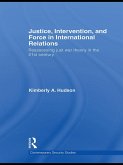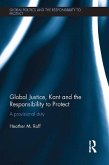To address climate change fairly, many conflicting claims over natural resources must be balanced against one another. This has long been obvious in the case of fossil fuels and greenhouse gas sinks including the atmosphere and forests; but it is ever more apparent that responses to climate change also threaten to spur new competition over land and extractive resources. This makes climate change an instance of a broader, more enduring and - for many - all too familiar problem: the problem of human conflict over how the natural world should be cared for, protected, shared, used, and managed. This work develops a new theory of global egalitarianism concerning natural resources, rejecting both permanent sovereignty and equal division, which is then used to examine the problem of climate change. It formulates principles of resource right designed to protect the ability of all human beings to satisfy their basic needs as members of self-determining political communities, where it is understood that the genuine exercise of collective self-determination is not possible from a position of significant disadvantage in global wealth and power relations. These principles are used to address the question of where to set the ceiling on future greenhouse gas emissions and how to share the resulting emissions budget, in the face of conflicting claims to fossil fuels, climate sinks, and land. It is also used to defend an unorthodox understanding of responsibility for climate change as a problem of global justice, based on its provenance in historical injustice concerning natural resources.
Dieser Download kann aus rechtlichen Gründen nur mit Rechnungsadresse in A, B, BG, CY, CZ, D, DK, EW, E, FIN, F, GR, HR, H, IRL, I, LT, L, LR, M, NL, PL, P, R, S, SLO, SK ausgeliefert werden.









